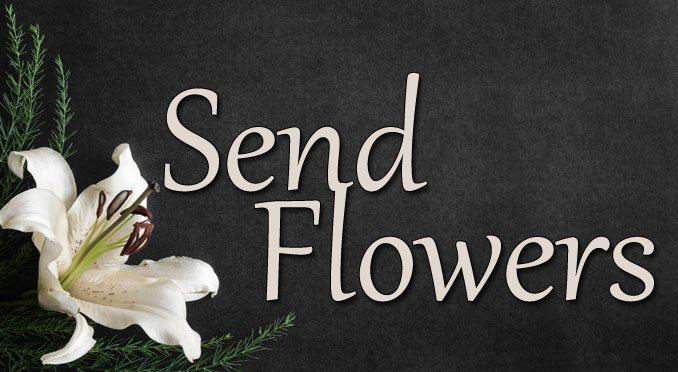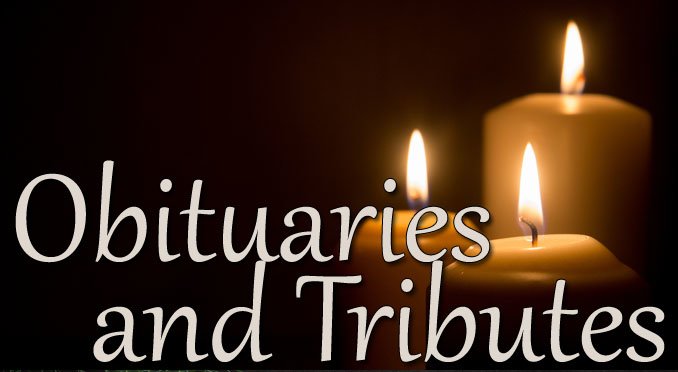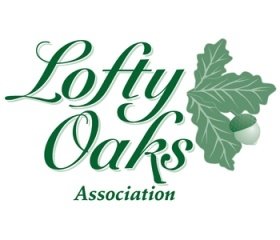
How to Write an Obituary
What's involved in writing a good obituary? That's really the first thing you have to think about when sitting down to write one for a spouse, other family members, or a close friend. Exactly what factual information should it include and how can you find a balance between dry facts and engaging storytelling? We have the answers to those questions and hope you will find this information about how to write an obituary helpful.
What's the Difference Between an Obituary and a Death Notice?
The obituary is a longer, more detailed look at the life of the deceased and the death notice is merely a compilation of relevant facts. The obituary also includes those essential details but it expands on them to provide a more complete look at the deceased's life experiences.
The first of the details would, of course, be their name. If she was a married woman, you'll want to include her maiden name and if he or she was commonly known by a nickname, you may want to add that as well.
Other essential details to include when writing either a death notice or an obituary are:
- Their age upon death
- Birthday
- Birthplace
- A list of the surviving relatives
- The date of death
- The location (city/state) where they died
- Details about the funeral service: date, time, place
- Full name
- Date of death
- Where the person lived
We think it benefits the families we serve when we remind them of the simple truth: in writing an obituary for your loved one, you have the opportunity to serve future generations — not only of your immediate family but of the society as a whole. You are, in effect, recording history on an individual scale. It's a humbling yet inspiring thought.
Well-Written Obituaries
It's very easy to find examples of obituaries that are worthy of attention. There are interesting obituaries for everyday folks that inspire us; maybe even make us cry or laugh. Obituaries which, when we're done reading them, we say to ourselves, "I wish I'd had a chance to get to know that person." Obituaries are scattered in cyberspace, acting as digital records of a life, a time, and a place; and recently, some very funny obituaries have been written.
Will writing our own obituaries become a trend? Maybe. We know many more people are writing their own obituaries today as it's often given as an assignment in certain college and university courses.
How you document your loved one's life story is up to you. With that said, we recommend that in addition to the facts of a death notice listed above, the enhanced death notice, known as an obituary, could also include these details:
- Parents' names
- Information about the spouse and children
- Church affiliations
- Job or career information
- Personal and professional accomplishments
- Personal character and interests
- Influence on his or her community
It's now time to push the facts aside. Sit back and think about the anecdotes and memories you could share to shed some light on your loved one's character and personal interests. Bring factual details into play whenever you can to help the reader clearly see who your loved one was, how they lived, what they did, who and what they loved. The more rich in detail, the more memorable the obituary becomes.
Double-Check Spelling and Grammar
Before you give a copy of the final draft of your loved one's obituary, be sure to read it through twice or even three times. You're looking for errors in spelling and grammar but you also want to make sure your facts are straight.
Obituary Format
Suggested Paid Obituary Format Information
Please email the completed obituary to our funeral home at: info@clarkassociatesfuneralhome.com
Then follow up with a phone call to us at 914-232-3033 to be sure we received the obituary.
- Date(s) to Run: _______________________
- Name of Deceased, Age
- Of (town/city)
- A resident for ___ years
- Date of death, Place of death
- Date and place of birth and parents names
- Education: High School, College and degrees attained
- Veteran Status: include branch of Service and War or dates served
- Occupation (before retirement) including name of employer and location
- Name of organizations where they were a member
- Personal qualities, talents, hobbies or interests of the deceased
- Family survivors: spouse, children, grandchildren, brothers and sisters and city, state of each
- Full name, mailing address or website of organization for Memorial Contributions
The Funeral Home will add the following information:
- Times and Date of Visiting Hours
- Time, Date and Place of Funeral, Memorial Service or Mass of Christian Burial
- Place of interment or cremation
1. The Journal News: obituary@lohud.com
2. Somers Record: somersrecord@halstonmedia.com
3. NY Times: nytimes@mediasalesplus.com
The format for obituaries can vary depending on whether it is for the New York Times, the Journal News or for the website. Here are examples of each:
New York Times Paid Death Notice
($56.00/line for one day, $62.00/line for two days, $1100.00 additional for photo)
Clark, William H. , “Bill” 95, of Katonah, NY formerly of Brooklyn, on Monday, January 10th 2011 Proprietor of Clark Electrical Service in Mt. Kisco . Beloved husband of Roseanne (nee Voisard), devoted father of Paul (Jane) of Somers, NY, David (Susan) of Pawling, NY, Marianne (Joseph) Rast and Bradley (Becky) of Tonawanda, NY. Loving grandfather of four, great grandfather of two. Dear brother of Catherine and Paul Calteaux. Friends may call at Clark Associates Funeral Home, 4 Woods Bridge Rd., Katonah, NY on Friday, January 14th 2-4 and 7-9 PM. Mass of Christian Burial at St. Mary’s RC Church, Katonah, NY , Saturday, January 15th, 10:00 AM. Internment to follow at Ferncliff Cemetery, Hartsdale, NY In lieu of flowers, contributions may be made to Tour de Cure, 315 Alberta Drive, Suite 102, Amherst, NY 14226 |
Journal News Paid Obituary and Website
($19.00/line)
| Clark, William H. , “Bill” 95, of Katonah, NY formerly of Brooklyn, died Monday, January 10th 2011 at Northern Westchester Hospital. Bill was born on August 30th 1916 in Dusseldorf, Germany to the late Fred and Maize( Heinz ) Clark He emigrated to the United States at the age of 15 years. Bill was a U.S. Army veteran and served in the Pacific Theatre during WW II, and received the Silver Star. He was a graduate of Cornell University receiving his BA in Electronic Engineering. Bill was the proprietor of Clark Electrical Service in Mt. Kisco for many years and retired in 1985. He was a charter member and past president of the Somers Rotary Club. Bill is the beloved husband of Roseanne (nee Voisard) and is the loving father of Paul (Jane) of Somers, NY, David (Susan) of Pawling, NY, Marianne (Joseph) Rast and Bradley (Becky) of Tonawanda, NY. He is the devoted grandfather of Rosemary, Jay, Rodney and Bruce and two great granddaughters, Shannon and Cindy. Bill is the brother of Catherine and Paul Calteaux of Punkshire Corners, NY and is also survived by several nieces and nephews. Friends may call at Clark Associates Funeral Home, 4 Woods Bridge Rd., Katonah, NY on Friday, January 14th from 2-4 and 7-9 PM. A Mass of Christian Burial will be at St. Mary’s RC Church 117 Valley Rd, Katonah, NY on Saturday, January 15th at 10:00 AM. Internment will follow at Ferncliff Cemetery 280 Secor Rd, Hartsdale, NY 10530. In Memoriums may be made to Tour de Cure, 315 Alberta Drive, Suite 102, Amherst, NY 14226 |
Eulogies
"The writing and reading of a eulogy is, above all, the simple and elegant search for small truths. This can be surprisingly hard, to take notice of the smallest, most unpolished details of a life and set them up for us to stare at in the wonder of recognition."
—Tom Chiarella, "How to Give a Eulogy"
How do you begin writing a eulogy? Editor Carol DeChant explains, "Obituaries are usually mini-biographies, focused on what a person did, but the eulogy is much deeper, more about who the person was...It's meant for the select group of people who knew and cared for that person, or who care for the survivors."
Christina Ianzito, in "How to Write a Eulogy," offers these suggestions; many of them come from Garry Schaeffer's book, A Labor of Love: How to Write a Eulogy:
Outline the eulogy. In addition to helping you stay focused, an outline will keep your eulogy organized and effectively break down the task of writing into manageable pieces.
Ask for the input of other family members and friends. They may be able to provide you with some great stories to share.
Always try to share examples of the statements you make about your loved one. If you want to say, "she was generous with her time," tell a story that supports the statement.
Do not focus too much on yourself. After all, this isn't a eulogy for you; keep your writing focused on your loved one. You may even want to ask others to read your first draft to make sure the focus is in the right place.
Go for the humor. Shared laughter is a very healing experience so don't be afraid to make people laugh.
Write the first draft. Don't fuss over every word; just get your ideas on paper.
Put it aside for a while. This has, no doubt, been an emotional experience. Take some time away from the writing desk to get perspective and release stress or sorrow.
Come back to edit and polish. This is the time to refine the eulogy into its final form.
Print a legible copy of the eulogy, in a large font, to assist in the delivery of your well-chosen words. There's nothing worse than not being able to read your handwriting when you're standing in front of a crowd of people.




